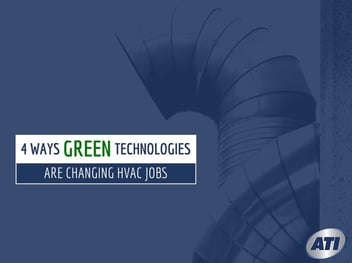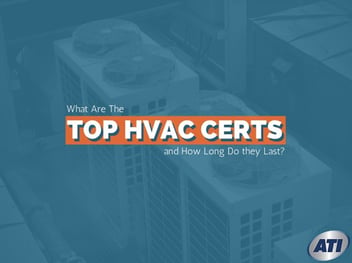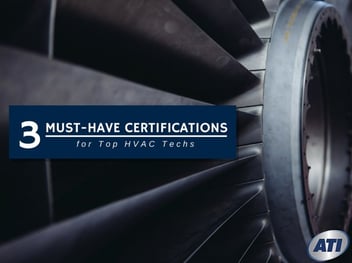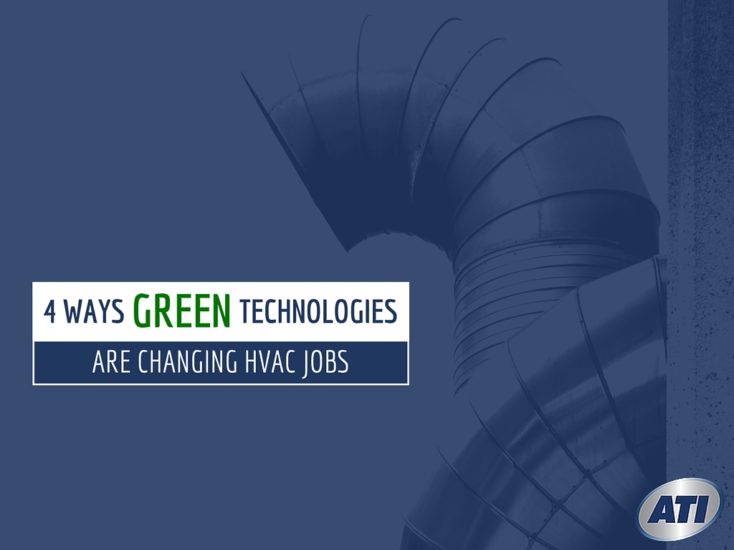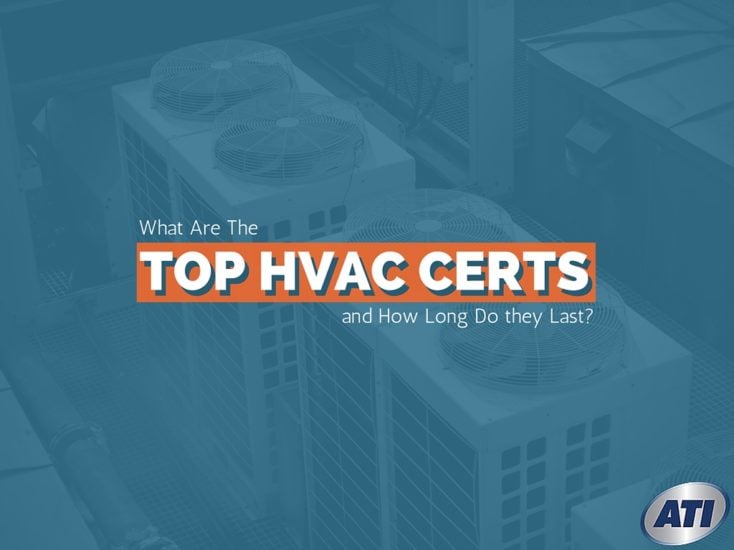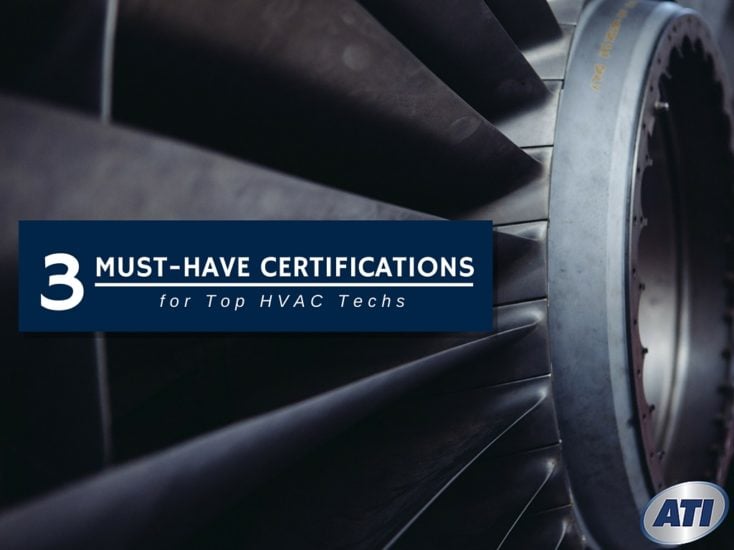How to Become a Heating and Refrigeration Mechanic in 3 Easy Steps

Modern technological advancements have reshaped the HVAC-R industry.
Today’s equipment can connect with tech-savvy thermostats to alert residents immediately of any issues and new eco-friendly units are more attractive than ever. These improvements have led to an increased demand for knowledgeable HVAC-R technicians who’re adept with the latest equipment and can evolve with technology.
This all leads up to a perfect storm of possibilities for individuals who are considering pursuing a career in HVAC and refrigeration. HVAC-R in an industry with heightened demand as most of the United States is experiencing average or above average demands for HVAC technicians, with exciting growth projection as a whole.
Eager to join the boom? Here’s how you can become a heating and refrigeration mechanic in just three easy steps:
Step 1: Get Training in HVAC/R
The first step to becoming a HVAC-R mechanic begins with choosing a training program that best fits your needs in order to become successful in the industry. You should consider whether there is a specific area of expertise you want to focus on, such as solar power or refrigeration, and look for programs that specialize in those niches. You’ll also want to look for schools that have courses led by instructors with a significant amount of experience in the field, offer classes on modern technology in a wide variety of subjects, and have a high graduation and job obtainment rates.
In addition to the type of classes and instructors, you should also consider the style of learning that’ll best help you succeed in the school environment. For instance, if you can’t afford to take time off from your current job, then you should consider a school that has flexible scheduling with online and night classes. For HVAC-R, it’ll be important for you to get a ton of hands-on experience, so you should also consider class sizes and how much face-to-face time you’ll have working with your instructors.
Additionally, you’ll eventually need to pass certain certifications in order to earn the right to work with specialized chemicals and equipment. Choosing a program that is authorized to test and award these certifications will help you get on the fast track to success in the HVAC-R industry.
Step 2: Complete an HVAC Apprenticeship
Once you’ve graduated from your school of choice (or in some cases, while you’re taking classes), you’ll want to apply for an apprenticeship. It’s important to note that an apprenticeship is not the same as an internship as the former takes over a longer period of time and is always a paid position.
In most states, apprenticeships are a required and formal stage in the HVAC-R career path that may last between 3 to 5 years. Apprentices are hired on by licensed contractors and will receive standard industry pay and benefits. During this period, the apprentice HVAC-R technician will shadow a licensed and more experienced technician to obtain a minimum of 2,000 hours of on-the-job training.
Obtaining an apprenticeship is similar to getting a job: you search for the program, apply for an open slot, and qualify during an interview. You should also speak with your program of choice as most technical schools will offer partnerships with local apprenticeship groups or HVAC-R companies who’ll take you on.
Step 3: Become Licensed and Certified
Licensing for HVAC-R technicians is not a federal mandate, but rather a requirement that varies by state. While you do need to be licensed in the state of Virginia, states that don’t require an HVAC-R technician to be licensed include: Wyoming, Vermont, South Dakota, New York, New Hampshire, Missouri, Maine, Kansas, Indiana, Illinois, and Colorado. However, even in those states, certain employers may require their technicians to obtain licensing and higher level certifications in order to be perceived as a higher value company by their clients.
Every state has different licensing requirements, so it’s best to look up the state you plan to work in and obtain the necessary documentation or proof of work for the application process. After you’ve submitted your application to the state office and it’s been pre-approved, you’ll need to pass an established licensing exam to ensure you’re aware and educated in the industry, of particular note is proving your knowledge in the proper use and disposal of refrigerant.
Refrigerant, in addition to being a part of most state licensing exams, requires its own specific certification that must be passed by anyone who buys or handles refrigerant. The US Environmental Protection Agency has established four types of exams for refrigerant, with each one oriented towards a certain type of refrigerant and its use.
Great school to study HVAC at, had a good time there and they helped me get a job at MSCO!
Posted by Tommy Harrah on Friday, August 14, 2015
Bonus Step? Enjoy the Benefits of Being a HVAC-R Technician
The HVAC-R industry is booming with opportunities for financial and emotional success. This a great career for people who love troubleshooting mechanic problems and helping customers achieve a more comfortable and energy-efficient home.
At ATI, we believe that successful careers are best started with a successful education. Not only does our HVAC Technology with Service Management (AOS) program include intensive hands-on courses with experienced instructors, but we’re also a NATE certified testing center and offer all four types of EPA refrigerant certifications. This means that by your graduation date, you could be prepared for the workforce with the confidence and skills earned from having real experience and proven success with national certifications at your disposal. To learn more, contact us at 800-468-1093 or request information today.
DISCLAIMER – Advanced Technology Institute (ATI) makes no claim, warranty or guarantee as to actual employability or earning potential to current, past or future students or graduates of any educational program offered. The Advanced Technology Institute website is published for informational purposes only. Every effort is made to ensure the accuracy of information contained on the AUTO.edu domain; however, no warranty of accuracy is made. No contractual rights, either expressed or implied, are created by its content.
Gainful Employment Information – HVAC Technology with Service Management (AOS)
Gainful Employment Information – Air Conditioning & Heating Technology (Diploma)
For more information about Advanced Technology Institute or any of our programs click here: http://www.auto.edu/ or http://ow.ly/VoydP.
Industry Knowledge
Welcome to the Advanced Technology Institute's Blog, your resource for industry insights and discussions on technologies shaping the future of automotive, heavy vehicle, hvac, welding, and other related career paths.
Explore how ATI's curriculum and hands-on learning opportunities can propel your career in the tech-driven world.

